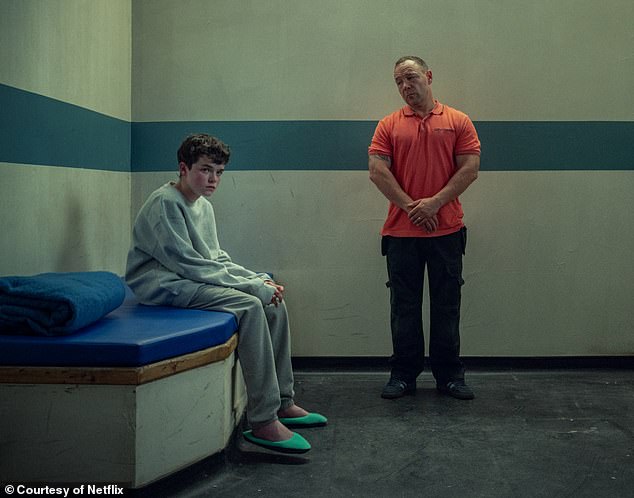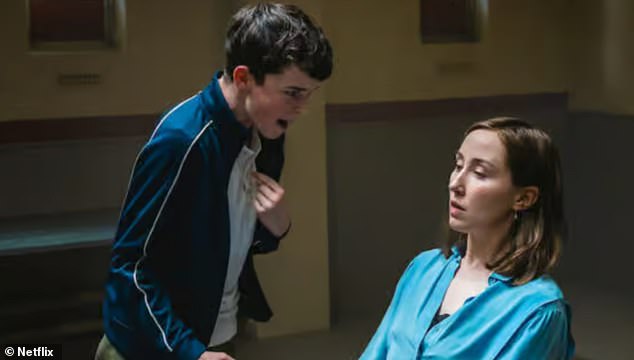Involuntary celibate men should be spent speed dating so they can overcome their women hatred, a leading expert has said.
‘Date coaching’ is also among the tools recommended by Andrew Thomas, a senior lecturer at the University of Swansea.
The incel movement is an online community of men who feel bitterness towards females due to their lack of sexual reciprocation – believing they are entitled to it.
Participants may subscribe to the “black pill” worldview – a philosophy that implies the men have dismal romantic prospects and there is nothing they can do to improve them.
The online subculture is rooted in reclusive men blaming women for their lack of sexual access.
Speaking to The Times, Mr Thomas – author of the largest global study into incels by the Commission for Countering Extremism (CCE) – cautioned his advice was about helping incels learn how to form relationships and ‘not about getting these guys laid’, which he branded an ‘unhelpful’ interpretation.
The expert explained: ‘My perspective is that for a lot of these guys there’s a huge deficit in knowing how to have any sort of social relationship at all.

The incel movement is an online community of men who feel bitterness towards females due to their sexual frustrations – believing they are entitled to sex (file image)

Mr Thomas (pictured) also pointed to research in Singapore that found dating coaches had helped young men who struggled to form relationships, leading to successful longer-term ones
‘It’s very easy to walk around hating 50 per cent of the population if you’re never subjected to that half of the population.’
Mr Thomas also pointed to research in Singapore that found dating coaches had helped young men who struggled to form relationships, leading to successful longer-term ones.
The comments come as the Netflix series Adolescence has thrust the perils of the incel movement back into public discourse in the UK, triggering a national conversation about the impact of social media and self-proclaimed misogynistic influencers in the “manosphere” subculture.
The mini-series follows the trial of 13-year-old Jamie who is accused of murdering his fellow classmate, showing how the online movement can negatively shape the attitudes of boys towards the opposite sex.
Sir Keir Starmer held a meeting in Downing Street following the release to discuss how to combat extreme misogyny.
It was then decided the series would be aired for free in secondary schools and that children would be given lessons to counter misogyny under the government’s new relationships, health and sex education (RHSE) guidance.
There have been some concerns this could be counter-productive, however, if schoolchildren take it as being lectured.
Mr Thomas described the Netflix series as ‘a sweeping cultural phenomenon’ that would lead parents to be more conscious about their sons who spend time in their bedroom.

A spate of brutal child murders and Britain’s escalating knife crime epidemic drove actor Stephen Graham to make the hit Netflix show Adolescence. (pictured: is Graham with Owen Cooper, left, who plays his son Jamie in the show)

Teachers fear young boys and male teens are becoming increasingly more threatening and sexists towards female teaching staff. Pictured is Owen Cooper as his character Jamie explodes with rage at his psychologist, Erin Doherty (Briony Ariston) on Netflix’s Adolescence
But Mr Thomas admitted the date coaching would be unsuitable for those on the extreme end of the incel group with ‘dark personality styles’ including pschopathy and narcissism.
He also stated his team’s research had shown two separate paths into ‘the incel experience’ – one being marked by high levels of autistic traits, poor social skills, a history of bullying, poor mating, perceived mating value and self-esteem.
The other he described as the high dark triad – ‘dark personality style, pschopathy, narcissism, Machiavellianism, far right-wing views’.
He said the first of those two groups could ‘benefit quite a bit from social social skills training’.
But Mr Thomas cautioned the second already had social skills which they use to ‘take advantage of people’ and so the training would be ‘strengthening a problem that’s already there’.
Reflecting on his experience with incels, Mr Thomas reported one of the things often said to him by them was it is ‘not safe’ to approach women to ask them on a date.
He added there was a culture of ‘constantly sharing’ examples of how society hates them as they withdraw into an online community, expectant of rejection.
Their concept of a woman is ‘very one dimensional and based on the stereotypes they see online’, Mr Thomas said.
But he explained counterexamples of ‘real women who are not one dimensional, but three dimensional’ could help turn a black and white view into shades of grey.
He concluded: ‘And then what happens is they end up having more female friends. They build the skills that you need like the social skills for having friends and then having a relationship becomes a lot less of a hopeless prospect for them.’







